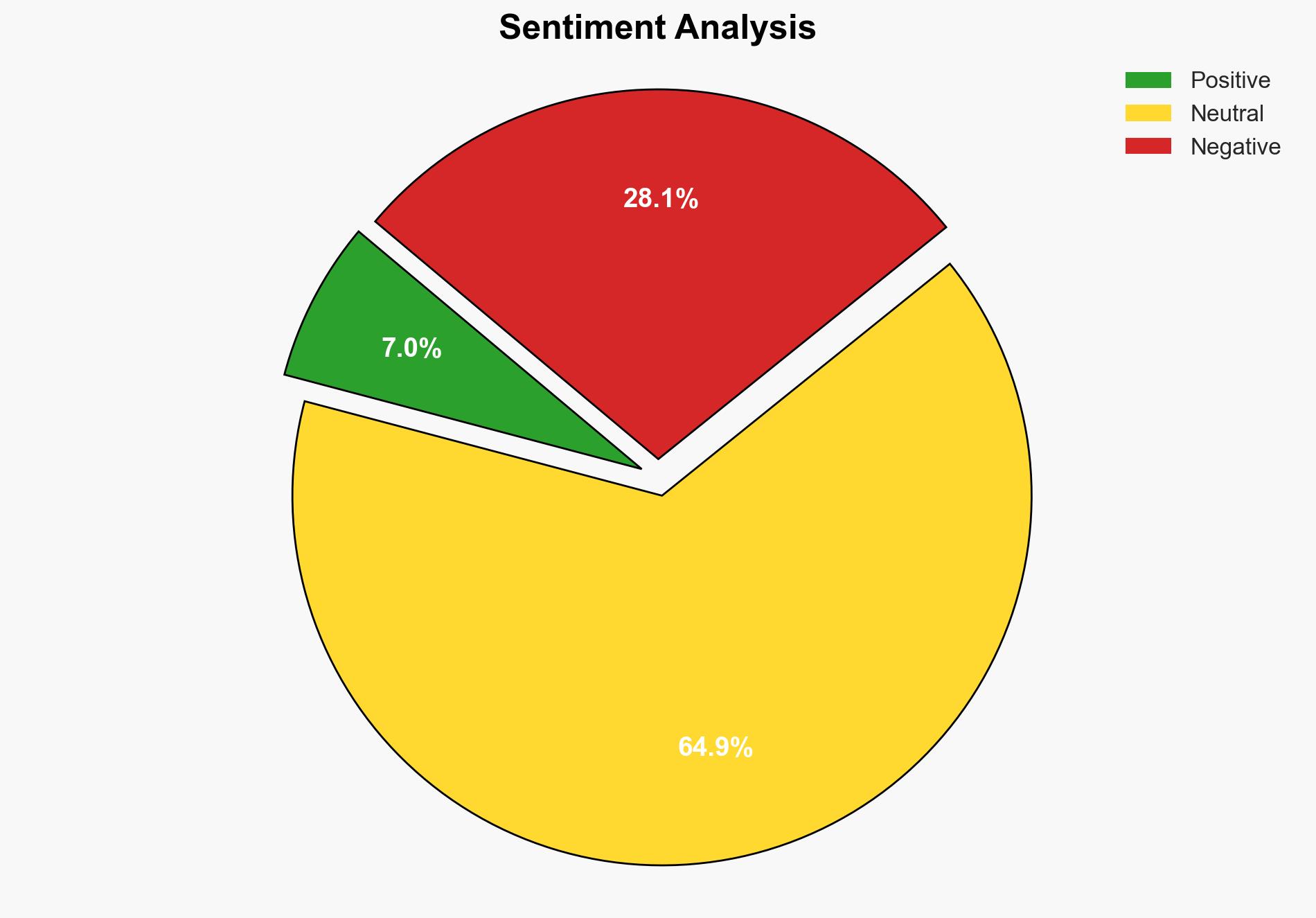Afghanistan denies link to train attack in Pakistan – Globalsecurity.org
Published on: 2025-03-14
Intelligence Report: Afghanistan denies link to train attack in Pakistan – Globalsecurity.org
1. BLUF (Bottom Line Up Front)
Afghanistan has officially denied any involvement in the recent train attack in Pakistan, which resulted in significant casualties and hostage situations. The Afghan Ministry of Foreign Affairs has labeled Pakistan’s allegations as baseless. This incident marks an escalation in the ongoing separatist insurgency in Balochistan. The situation poses significant risks to regional stability and necessitates enhanced diplomatic and security measures.
2. Detailed Analysis
The following structured analytic techniques have been applied for this analysis:
General Analysis
The attack on the passenger train in Balochistan, attributed to the Baloch Liberation Army, has intensified tensions between Afghanistan and Pakistan. Despite Pakistan’s claims of Afghan soil being used for orchestrating the attack, Afghanistan has categorically denied these allegations. The use of satellite phones and the involvement of external collaborators suggest a complex operational network. This incident is part of a broader pattern of increasing terrorist activities in Pakistan, which has seen a rise in attacks this year.
3. Implications and Strategic Risks
The ongoing insurgency in Balochistan and the alleged cross-border terrorist activities pose significant risks to regional stability. The escalation could lead to strained diplomatic relations between Afghanistan and Pakistan, impacting bilateral cooperation on security and counter-terrorism. Additionally, the persistent threat of terrorism may deter foreign investment and hinder economic development in the region. The situation requires careful monitoring to prevent further deterioration.
4. Recommendations and Outlook
Recommendations:
- Enhance intelligence-sharing mechanisms between Afghanistan and Pakistan to address cross-border terrorism effectively.
- Strengthen diplomatic channels to facilitate dialogue and reduce tensions between the two nations.
- Implement comprehensive security measures to protect critical infrastructure and civilian populations in affected regions.
Outlook:
In the best-case scenario, increased cooperation between Afghanistan and Pakistan could lead to a reduction in cross-border terrorism and improved regional stability. In the worst-case scenario, continued allegations and lack of cooperation may exacerbate tensions, leading to further violence and instability. The most likely outcome involves a protracted period of diplomatic negotiations with intermittent security incidents.
5. Key Individuals and Entities
The report mentions significant individuals and organizations, including Sarah Zaman, Abdul Qahar Balkhi, Ahmed Sharif Chaudhry, Shafqat Ali Khan, and Munir Akram. The Baloch Liberation Army and the Tehreek-e-Taliban Pakistan are identified as key entities involved in the regional security dynamics.





